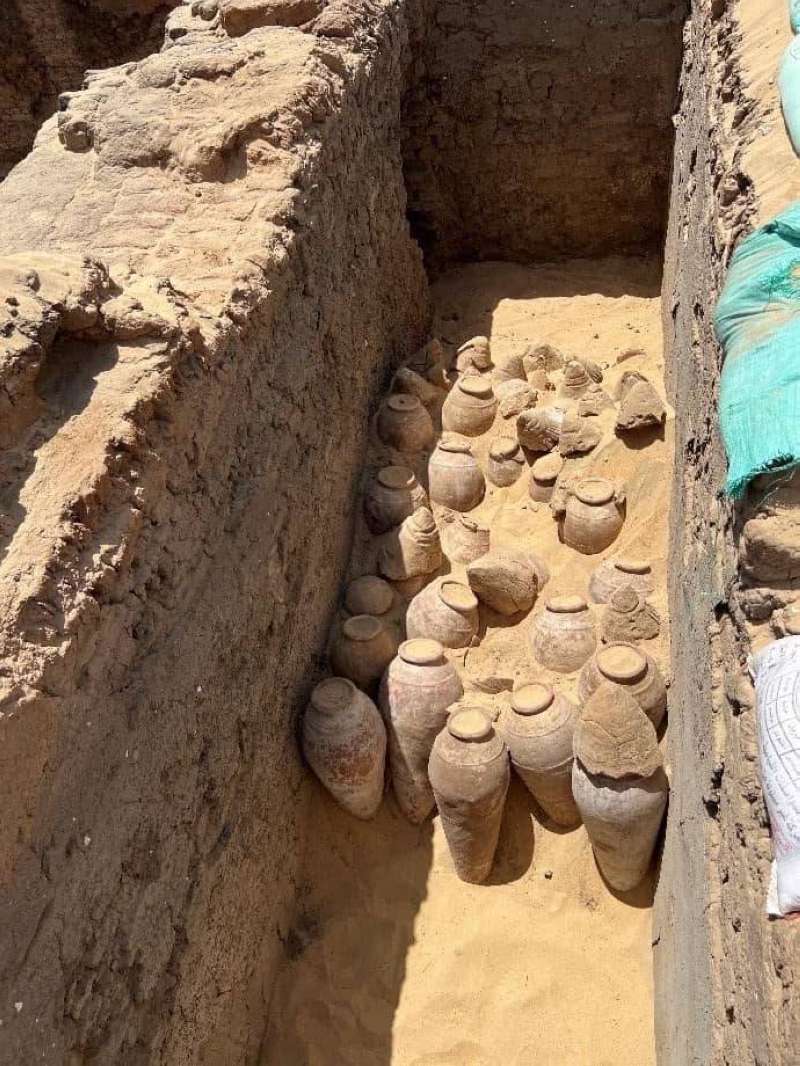Merit-Neith, meaning “Beloved by Neith”, was a consort and regent during the first dynasty. Despite her name not being included in the king lists from the New Kingdom, Merit-Neith may have been the first female pharaoh of Ancient Egypt.
She is linked with the kings Djer, Djet and Den in a variety of seal impressions and inscribed bowls, suggesting that Merit-Neith was the mother of Den and the wife of Djet.

Archaeologists have been excavating her tomb in the Umm al-Qaab area in Abydos, Egypt, which was first discovered in 1900 by Flinders Petrie. Excavations by Petrie uncovered a large underground chamber which was surrounded by rows of small satellite burials, and at least 40 subsidiary graves for servants
The latest archaeological mission has discovered hundreds of sealed jars, in which the team have identified traces of wine that dates from 5,000-years-ago.
A thriving royal winemaking industry was established around 3000 BC in the Nile Delta, when grape cultivation from the Levant was introduced to Egypt. This industry first emerged through trade connections between Egypt and Canaan during the early Bronze Age.

Dr. Dietrich Rau, Director of the German Institute in Cairo, said: “The excavation work in the tomb also succeeded in revealing new historical information about the life of Merit-Neith and the period of her reign.”
The team found tablets inside the tomb with inscriptions that describe Merit-Neith being responsible for central government offices, further supporting the belief that Merit-Neith ruled with the position of pharaoh.